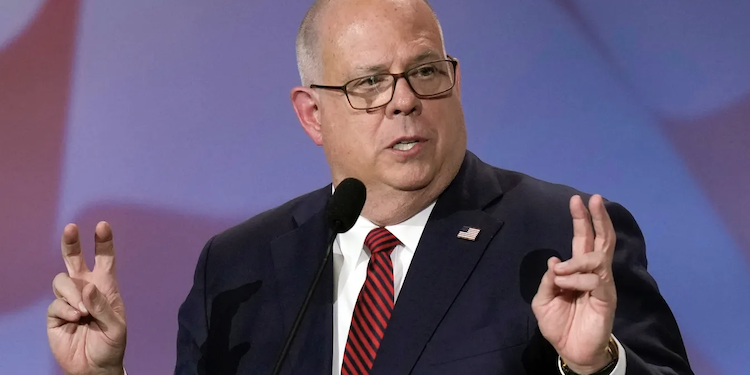On January 27, 2021, then Gov. Larry Hogan announced some good news for affordable housing in Maryland: nearly $40 million in competitive awards to spur construction of 18 low-income housing projects. “During our administration,” Hogan said, “The State of Maryland has provided financing and tax credits to create or preserve more than 20,000 affordable rental units across the state—an unprecedented level of production.” But there was one detail Hogan didn’t mention: one of the projects was being developed on his own family’s property.
The bucolic land in Frederick County, roughly 50 miles north of Washington, D.C., had been in the Hogan family since the governor’s father, former Congressman Larry Hogan, Sr., and his second wife, Ilona Hogan, bought it in 1983 for $230,000. Now, three years after Hogan Sr. had passed away and six years into his son’s tenure as governor, Hogan’s stepmother was converting the ten-acre property into an income-restricted housing facility. Ilona Hogan had transferred the property into a limited liability company (LLC) she owned, according to land records reviewed by TIME. Osprey Development, a listed client of Hogan’s real estate brokerage firm, HOGAN, had been engaged to helm the project. The $15 million in low-income housing tax credits over ten years and $1,035,000 in state funds that Hogan announced that day made Crestwood Manor, as the 60-unit affordable housing complex would become known, a reality. It also paved the way for the ultimate sale of the property. In November 2022, Ilona Hogan sold it to Osprey for $3.75 million.
The Crestwood Manor project is the latest example of a potential conflict of interest between Hogan’s authority over Maryland housing dollars as governor and his family’s real estate businesses. Maryland law says that officials cannot knowingly participate in decisions in which they or a close relative have an interest. “Approving transactions which benefit you personally or your family or your affiliated interests is, I would say, at a minimum, unethical,” says Warren Deschenaux, former director of Maryland’s nonpartisan Department of Legislative Services. “The governor is responsible for what happens under him.”
Click here to read the rest of the article written by Eric Cortellessa over at TIME





